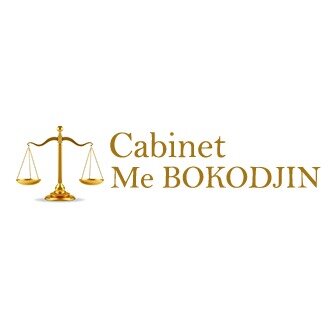Best Restructuring & Insolvency Lawyers in Lomé
Share your needs with us, get contacted by law firms.
Free. Takes 2 min.
List of the best lawyers in Lomé, Togo
About Restructuring & Insolvency Law in Lomé, Togo
Restructuring and insolvency law in Lomé, the capital of Togo, governs how financially distressed businesses and individuals handle their debts and obligations. This area of law aims to provide fair solutions for both debtors and creditors, whether it is by reorganizing the affairs of a struggling business or by ensuring an orderly liquidation when a business cannot continue operating. Lomé follows national Togolese law, but it is also guided by the Organisation pour l’Harmonisation en Afrique du Droit des Affaires (OHADA) framework, which unifies commercial laws across many West and Central African countries. This legal framework sets the rules for insolvency proceedings, assists in balancing the interests of creditors and debtors, and promotes economic stability.
Why You May Need a Lawyer
Navigating restructuring and insolvency proceedings can be complicated and stressful. Here are common situations where people often seek legal help:
- When a business is unable to meet its financial obligations and needs to consider restructuring its debts
- If a creditor seeks to recover overdue debts from an insolvent individual or company
- During negotiations with creditors to avoid formal insolvency proceedings and reach amicable settlements
- For guidance on filing for bankruptcy or opening collective proceedings before the courts
- To protect your rights as a shareholder or stakeholder in a business going through insolvency
- If you suspect fraudulent activities or preferential treatment in the lead-up to insolvency
- To ensure compliance with OHADA and Togolese laws throughout all legal processes
A lawyer ensures that your interests are properly represented, helps you understand your rights and obligations, and guides you through the technicalities of restructuring or insolvency procedures.
Local Laws Overview
Restructuring and insolvency processes in Lomé are governed primarily by the OHADA Uniform Act on Collective Insolvency Proceedings. This Act outlines two main types of proceedings:
- Preventive Proceedings (Conciliation and Preventive Settlement): Designed to help businesses avoid insolvency by allowing them to negotiate with creditors under court supervision.
- Collective Proceedings (Judicial Reorganization and Judicial Liquidation): Activated when prevention is no longer possible. Judicial reorganization seeks to preserve the business and jobs, while judicial liquidation involves closing the business and satisfying creditors from its assets.
Key aspects include:
- Opening of Proceedings: Any insolvent company, individual trader, or creditor can petition the court to open insolvency proceedings.
- Appointment of a Judicial Administrator: The court appoints an administrator to manage the debtor's assets, supervise operations, or carry out liquidation.
- Moratorium on Payments: Insolvency proceedings often result in a temporary halt on creditor actions, giving the business time to reorganize or for assets to be liquidated orderly.
- Creditors’ Rights: Creditors must declare their claims within a specified timeframe to participate in distributions.
- Fraudulent Transfers: Transactions made prior to insolvency that disadvantage creditors may be examined and potentially voided by the court.
Understanding these legal frameworks is crucial, as they impact timelines, the ranking of creditor claims, and the entire approach to debt recovery or business rescue.
Frequently Asked Questions
What is insolvency in the context of Lomé, Togo?
Insolvency is the inability of an individual or company to pay debts as they fall due. In Lomé, this is determined according to OHADA laws and local court procedures.
Are there alternatives to bankruptcy for businesses in Lomé?
Yes. Preventive proceedings such as conciliation and preventive settlement are legal options that allow companies to negotiate with creditors and potentially avoid formal bankruptcy.
Who can file for insolvency proceedings?
Both debtors and creditors may initiate insolvency proceedings before the commercial courts in Lomé if the conditions provided by the OHADA Uniform Act are met.
What happens to the assets of an insolvent company?
The court appoints an administrator to manage the assets. In judicial liquidation, these assets are sold, and proceeds are distributed to creditors according to their legal ranking.
Can insolvency proceedings stop debt collection actions?
Yes. Once proceedings begin, a moratorium is put in place, temporarily halting individual creditor actions to allow for orderly resolution under court supervision.
How long does an insolvency procedure usually take?
The duration depends on the complexity of the case and the type of proceedings. Preventive settlements may conclude within a few months, while full-scale liquidation can take a year or longer.
Will creditors recover all their money in liquidation?
Not necessarily. Often, asset liquidation does not cover all outstanding debts. Creditors are paid according to a legal order of priority and may only receive a portion of what is owed.
What are the duties of a judicial administrator?
A judicial administrator manages or oversees the debtor’s assets and operations, ensuring fair treatment of creditors. The administrator also reports to the court and organizes distributions or restructuring.
Can directors or managers be held liable in insolvency?
Yes. If there is evidence of fraudulent activities, mismanagement, or failure to comply with legal obligations, directors or managers may face civil or even criminal liability.
Is legal representation mandatory for insolvency proceedings?
While not always mandatory, having a lawyer is highly recommended due to the technical and procedural complexities involved in insolvency matters.
Additional Resources
If you need more information or official support, consider the following resources:
- Chambre de Commerce et d’Industrie du Togo (CCIT): Provides information and guidance to businesses, including those facing financial difficulties.
- Commercial Courts in Lomé: Official bodies responsible for overseeing insolvency and restructuring matters.
- Bar Association of Togo: Assists in finding qualified legal professionals with expertise in restructuring and insolvency law.
- OHADA Official Portal: Offers legal texts and updates on the OHADA Uniform Act applicable in Lomé.
- Local business support organizations: May provide mediation, guidance, and support for distressed businesses.
Next Steps
If you believe you require legal advice or assistance regarding restructuring and insolvency in Lomé, Togo, consider the following steps:
- Identify the specific challenges you are facing with your business or debts.
- Collect all relevant documents, such as financial statements, contracts, and correspondence with creditors.
- Contact a qualified lawyer with experience in OHADA and Togolese insolvency law to discuss your situation and options.
- Attend meetings or hearings with your lawyer, who will help prepare you and represent your interests.
- Stay informed about your rights and obligations throughout the restructuring or insolvency process.
Taking early action and seeking timely legal advice can help protect your rights, improve your chances of finding the best possible solution, and reduce the stress associated with financial difficulties.
Lawzana helps you find the best lawyers and law firms in Lomé through a curated and pre-screened list of qualified legal professionals. Our platform offers rankings and detailed profiles of attorneys and law firms, allowing you to compare based on practice areas, including Restructuring & Insolvency, experience, and client feedback.
Each profile includes a description of the firm's areas of practice, client reviews, team members and partners, year of establishment, spoken languages, office locations, contact information, social media presence, and any published articles or resources. Most firms on our platform speak English and are experienced in both local and international legal matters.
Get a quote from top-rated law firms in Lomé, Togo — quickly, securely, and without unnecessary hassle.
Disclaimer:
The information provided on this page is for general informational purposes only and does not constitute legal advice. While we strive to ensure the accuracy and relevance of the content, legal information may change over time, and interpretations of the law can vary. You should always consult with a qualified legal professional for advice specific to your situation.
We disclaim all liability for actions taken or not taken based on the content of this page. If you believe any information is incorrect or outdated, please contact us, and we will review and update it where appropriate.











